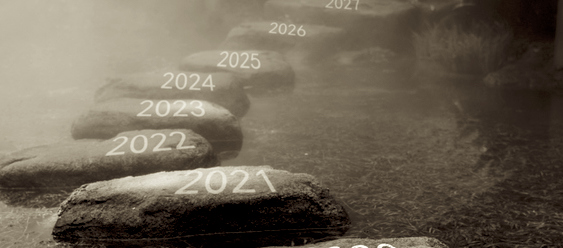
Half a century ago, Roe v. Wade created a right to abortion out of thin legal air. Fabricating a right to privacy loosely connected with human rights amendments, The Supreme Court overruled many state laws. The language of the ruling is rooted in ambiguity, with the majority opinion admitting that future scientific progress on viability could alter the application of this right. Feminists hailed the ruling as a woman’s right to bodily autonomy and the end of the, “back alley/coat hanger” era of abortions. Since 1973, over 62,000,000 babies have been killed, a disproportionate number being babies of color, especially African American children.
For the first thirty years after Roe v. Wade, leaders in both parties were found in the pro-choice (pro-abortion) and pro-life (anti-abortion) camps. Almost all agreed that abortions in the final trimester should be avoided. Pro-life leaders understood there were rare exceptions that needed medical accommodation. The Hyde Amendment prevented federal funds from being used to finance abortions. Casey vs. Planned Parenthood further cemented pro-abortion policies. In the mid-1990s, the late Justice Ginsburg admitted that Roe rested on dubious legal and scientific foundations and needed to become federal legislation.
In the last two decades, pro-abortion advocates have gone from, “safe, legal, and rare” to “anytime, for any reason, up to and even during delivery” and “shout your abortion” as a positive thing. Economics, emotional happiness, and depersonalization of the developing child in the womb are all part of this radicalized strategy.
With a Supreme Court ruling immanent on abortion restrictions in Mississippi, the stage is set for the partial or complete overturning of Roe v. Wade. An unprecedented leak of an early draft penned by Justice Alito has enraged pro-abortion forces and threats of violence loom large as I write this essay.
As a thoughtful Christian and caring human being, I cannot in good conscience condone the destruction of innocent life, from conception to coronation. Tragedies of natural miscarriages and occasional urgent medical emergencies are one thing, but making the exceptions a general rule is nothing less that dehumanization of the vulnerable and state-sanctioned killing. By the way, I am also against the death penalty for civilian criminals, mainly because of 1) the possibility of a mistaken conviction; and 2) the desire for redemption for the convicted, even while in prison for life. Many current euthanasia laws are immoral and the number of intentional deaths is increasing.
Our need: a new vision of human flourishing
What I write here will not change the minds of advocates on either side, unless there is a fresh way of envisioning and framing the entire issue. We need a culture of life, a conscientious consensus on human flourishing that can unite women and men of goodwill and welcome children as gifts, not burdens, and unique persons, not clumps of cells. Here are some beginning axioms, some values that can help refocus and even reimagine the conversation:
- Protecting the unborn is part of a larger vision of caring for the vulnerable and affirming the value of every human person, regardless of their utility to society. From the unborn to the physically and mentally challenged, to the mentally ill and those struggling with diseases and old age, ALL people matter.
- We must create safe pathways for women to report sexual assaults and foster a climate of dignity so that perpetrators cannot intimidate their victims, with shame displaced by liberation for those who receive help.
- Anti-abortion advocates are often accused of not caring for mothers and children outside of the womb. This is an unfounded assertion, as there are hundreds, even thousands of agencies, centers, churches, and community groups ready to help. We can do better in empowering single moms (and couples) for a brighter future, including education and job training, housing and medical care.
- Churches and community groups can expand their services for adoption and foster care and help place children in loving homes, as well as offer safe haven for incest and rape victims.
- We can incentivize marriage and work by demanding greater accountability of the fathers for the children they help conceive and working to get people off unemployment and welfare.
- We can encourage young adults to delay sexual intimacy until marriage, finish at least a high school education, then remain faithful in their marriages (with exceptions for abuse, abandonment, and adultery, of course). Marital sexual intimacy is not only for procreation; however, we must stop divorcing this sacred act from one of its divinely-intended purposes.
- We must reject dehumanizing euphemisms for the developing child in the womb. An embryo and a fetus are growing human persons, not clumps of cells.
- In this flourishing future, we are not punishing the vulnerable, but persuading women and men of conscience with moral arguments, as well as scientific evidence.
The late Theodore Hershberg, former president of Notre Dame University, prayed we would be a society that welcomes children as a gift, not a burden. Philosopher Peter Kreeft argues that abortion is the moral issue of our day because underneath all the arguments are our understanding of God’s gifts of life and choice. May we choose life and flourishing.

